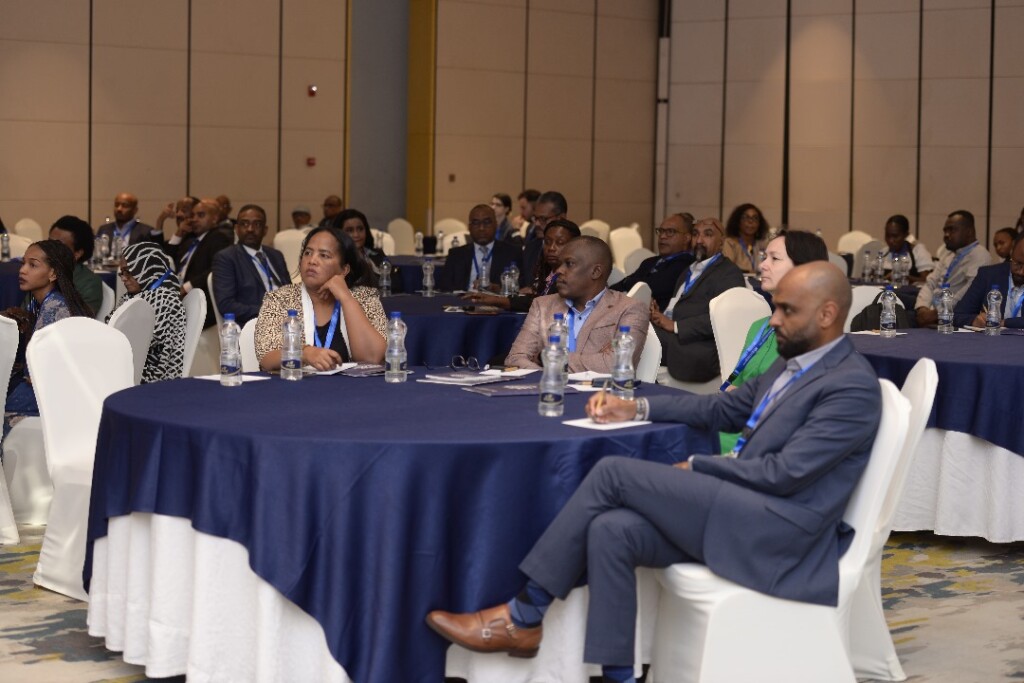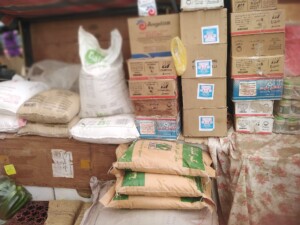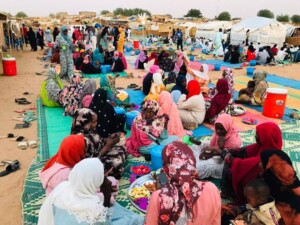Sudan Business for Peace: ‘Corruption finances the war’

The Sudan Business For Peace Conference, in Addis Ababa, the Ethiopian capital, February 27 (Photo: RD)
Participants in the Sudan Business for Peace Conference workshop, that began in Addis Ababa, the capital of Ethiopia, yesterday, addressed the presence of companies, both within Sudan and abroad, actively supporting and perpetuating the ongoing war. These companies are reportedly aligned with the Sudanese Armed Forces (SAF) and the Rapid Support Forces (RSF).
Experts participating in a closed workshop on war corruption in Sudan pointed to the involvement of foreign countries in the Sudan war, “given their vested interests in doing so”. Participants called on the United States of America to exert more pressure on these nations to cease their support for the war, whilst warning against Iranian expansion, and Emirati, Egyptian, Ethiopian, and Chadian presence in the conflict.
Sweden’s envoy and ambassador to Sudan, Anna Block Mazoyer, remarked that sanctions imposed on supporters of the war by the European Union “take considerable time, as they require consensus among 27 member states”. Nonetheless, she emphasised EU commitment to addressing the Sudanese war, “akin to its stance on conflicts in Gaza and Ukraine”.
Economist Bakri El Jak attributed the current crisis in Sudan to the absence of a functioning state, citing decades of economic mismanagement under the former Al Bashir regime. He highlighted how corruption thrived during this period, with regime leaders “establishing parallel companies controlled by the SAF and the RSF”.
A spokesperson for the Civil Democratic Forces alliance (Tagaddum) criticised the Sudanese Islamic Movement and the now-defunct National Congress Party (NCP) for “impeding peace efforts across various platforms, including Jeddah, Manama, and the Intergovernmental Authority on Development (IGAD).
“This obstruction can be attributed to [Islamists’] apprehension about being held accountable for embezzled funds”, he told attendees, adding they “bear significant responsibility for prolonging the conflict”.
Shaza El Mahdi from the Centre for International Private Enterprise (CIPE) underscored ongoing efforts by the Sudanese transitional government to draft legislation for a corruption commission, to monitor Sudan’s more than 3,000 companies and commerce chambers. “However, these efforts remain incomplete.”
Private sector
A panel titled ‘Resilience of Sudan Businesses during the War: The Case of SMEs and Informal Sector’, organised and moderated by Global Sudan Executive Director El Moez Saleh, addressed the impact of the war on the Sudanese private sector.
United Nations Food and Agriculture Organisation (UN FAO) agricultural expert Mohamed Omar, along with Shihab El Tayeb, cautioned about the looming threat of hunger if the winter harvest season fails in Sudan this year. “Farmers have depleted their savings to finance agricultural activities. If harvesting does not commence between March 15 and April 15, El Gezira could face severe famine”, they told attendees.
Mohamed El Fateh, an advisor for cooperative affairs, underscored the significant synergy between the private sector and cooperatives within Sudan. He cited a successful partnership between gum arabic-producing cooperatives and the private sector “which utilised social responsibility funds to enhance production and productivity”.
El Sadig El Barloum, a private sector worker and partner in a school in Khartoum, criticised the Sudanese private sector, branding the war as “an opportunity to expose its shortcomings and shamelessness”. He highlighted the absence of basic local products from markets during the initial stages of the war as “evidence of the sector’s failure”, and urged for rebuilding the private sector on new foundations “to overcome past failures”.
Participants also stressed the importance of considering climate change and its impacts, and called for a thorough review of the agricultural structure and the financing challenges it faces, debating whether to pursue self-financing or work with cooperatives as a solution.
“Increased production alone is insufficient without effective marketing strategies in place”, they noted.
Women in business
Former Labour and Administrative Reform Minister Tayseer El Nourani addressed several challenges confronting women in the Sudanese business sector.
In a panel titled ‘How The War Impacts Sudanese Women in Business’, she highlighted the success of women farmers in El Gedaref in “organising themselves into agricultural women’s associations”, stressing the importance of supporting the establishment of similar women’s cooperatives in rural areas.
Displacement due to violence in Sudan has led to “numerous women heads of households losing their sources of income and the professions they relied on”. The challenges they face are exacerbated by a loss of savings in “gold, money, and property”, El Nourani said. “Interruptions to the banking sector have deprived these groups of a crucial source of financing provided by microfinance outlets”, she added.
Amira, a trader in the Libya Market in Omdurman who is currently living with other Sudanese women in Addis Ababa, described the challenges they face, including the inability to return to work, and lack of organised assistance.
Panelist Susanne Hussein discussed the dire conditions of refugee women in Kampala, the Ugandan capital, saying that “many have lost their breadwinner and are receiving inadequate assistance”. Obstacles in funding and training hamper the success of initiatives aimed at helping refugee women, she added, rejecting the portrayal of women as “mere victims”.
In response to the situation of refugee women in Ethiopia, cooperatives advisor Mohamed El Fateh highlighted opportunities to form associations and cooperative for women, including “the establishment of an investment fund by business owners to finance women-led projects”.
Amna Bakhat, founder of The Pioneers Feed and of Women From Sudan, advocated for the establishment of centres to support and develop women’s projects in refugee areas, promoting safety and “the transition from an informal to an organised economy”.
Participants noted the complex problems faced by women in Ethiopia, including restrictive labour laws and temporary residency requirements, “which impose additional financial burdens on women”.
Najlaa El Tayeb, a Sudanese refugee in Ethiopia, spoke about her “inability to adapt to [her] new conditions or to leave the country”, and underscored the critical need for stability and housing for women in similar situations.











 and then
and then